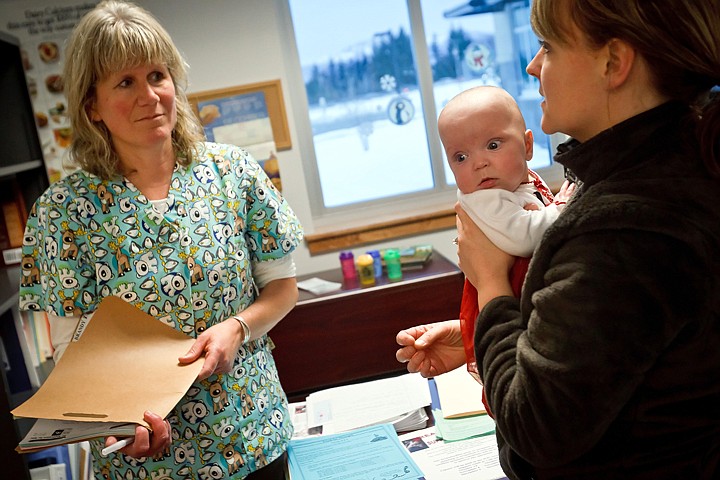Idaho getting healthy
Immunizations are up. Smoking is down.
Obesity is, well, not as bad as other states.
Idaho could be worse off.
A lot worse, according to a state health ranking released this week.
Idaho was dubbed the ninth healthiest state in the nation by the 21st annual America's Health Rankings, a jump from its 14th ranking last year.
"We're thrilled that Idaho moved up in the top 10," said Chris Stanley, senior medical director with UnitedHealth Group, parent organization of the United Health Foundation that published the ranking with the American Public Health Association and the Partnership for Prevention. "Rarely is there one particular item that will all of a sudden increase or decrease (a ranking). More of the time it's a multitude of things."
The placings are determined by state health stats like infant mortality, cancer deaths and cardiovascular deaths, Stanley said. Also considered are factors that affect residents' longevity, like the prevalence of smoking and public health funding.
Idaho skipped a few rankings for several reasons, Stanley said. The state has seen an improvement with smoking, as only 16.3 percent of Idahoans light up, the 12th lowest smoking prevalence in the nation.
The state boasts a low rate of cancer deaths, too, with only 177 deaths per 100,000, the seventh lowest in the nation. Immunization coverage has increased statewide from 87 percent to 90.3 percent, Stanley added.
"That's probably one of the biggest (factors)," he said.
Cynthia Taggart, spokesperson for Panhandle Health District, said the ranking is good news, but the district staff isn't letting it go to their heads.
"It's relative. It's so, so relative," Taggart said of the ranking, adding that Idaho was placed eighth in the nation in 2008. "You can't really compare Idaho to Washington or New York to Texas. We all have completely different situations and environments."
Still, North Idaho is doing plenty to keep residents healthy, she said.
Like PHD's focus on responding to infectious diseases, she said, which likely contributed to the state's fourth place ranking this year for low infectious disease, with only 3.6 cases per 100,000.
The H1N1 outbreak is a great example, she said.
"When it hit here, we had very low numbers," Taggart said. "We took the vaccine to the schools, we had a ton of vaccination clinics. People poured out for their vaccines. We made it accessible."
The district has also focused on boosting immunization of children and adults, she added. She is pleased Idaho has bumped up to 26th place for immunization.
"We're not at the top, but we're not at the bottom, either," she said.
PHD has provided long-term health programs like smoking cessation, she added. The district also offers nutritional counseling that focuses on pregnant women and children under 5.
Staff is even getting word out on minimizing sweets this holiday season, she said.
"We're not saying abstain. We're just saying moderation," she said.
Taggart said she was dubious of the America's Health Rankings statistic that Idaho provides $123 per person in public health funding.
In the Panhandle region, about $30 is spent per person, she estimated.
"Here, we barely make it, and we're thinking, '$123? Where?'" she said.
According to the Rankings website, the number is a combination of multiple revenue streams offered in the state.
Stanley said Idaho could shoot for more public health funding for the uninsured.
"Idaho does have a bit of a challenge with that, as do other states," he said.
But the state government isn't likely to look at increasing that soon, said Sen. John Goedde, R-Coeur d'Alene.
"In a year that we have to shrink the state budget by something in the neighborhood of $340 million, I don't know that there will be money available for expanded healthcare," he said.
Taggart pointed out another problem she would like Idaho to tackle.
"Obesity," she said.
According to the ranking, 25 percent of Idaho's population is obese, she noted.
"And we rank 12th nationwide (for obesity). How bad is that?" she said. "As a population, we need to work on healthy eating and physical activity."

